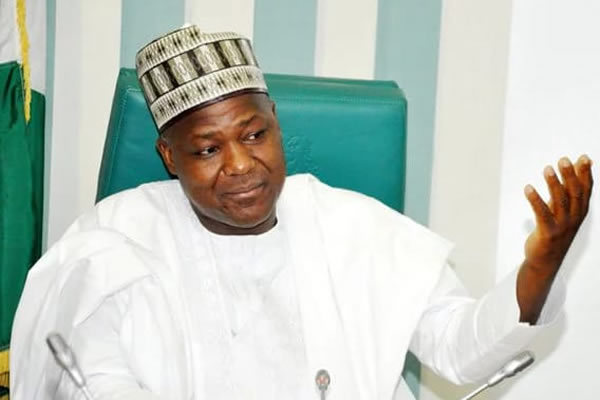- Nigeria Paid N2.7tn For Darkness in 16yrs
The Speaker of the House of Representatives, Mr. Yakubu Dogara, said on Tuesday that over N2.7tn of tax payers’ money spent on the power sector in the last 16 years only bought darkness to Nigerians.
Dogara noted that nothing had changed in the sector other than the fact that it continued to consume money but produced little positive results.
He observed that the privatisation of the sector had not fared better, a development Dogara said had put more pressure on both the Federal Government and other stakeholders to think of realistic steps to revamp electricity supply.
Dogara spoke in Abuja at the opening of a stakeholders’ dialogue on the ‘Nigerian Power Challenge: A Legislative Intervention’.
The session, which was facilitated by a power supply stakeholder, Surging Gold Limited, had, in attendance, the President of the Senate, Bukola Saraki; the Minister of Power, Works and Housing, Mr. Babatunde Fashola; and some key investors.
Dogara stated that Nigerians must again begin to ask questions as it would appear that every effort made to rescue the sector produced hiccups
He added, “Perhaps, the most important question is what happened to the N2.74tn spent on the sector from 1999 to 2015?
“Why is it that the more we spend on the power sector, the more darkness we attract?
“Why are most of the companies licensed by Nigerian Electricity Regulatory Commission not able to start their projects?”
Saraki pointedly said epileptic power supply in Nigeria was the “failure of governance.”
He stated, “Wherever we go in the world, the failure is on all of us, whether we are in the private sector or those of us in the public sector.”
The Senate President observed that privatisation was meant to be a solution, lamenting that generation companies and distribution companies were sold to persons who had no idea about how to run the sector.
Saraki called on all stakeholders to be sincere in finding sustainable solutions to the sector by thinking more of the general interest of Nigerians than selfish interest.
“We must be prepared to put Nigeria first and the government itself must be sincere with every decision that they have to take,” he added.
Fashola told the session that he could not agree less with Saraki and Dogara, but quickly added that there was no going back on privatisation.
The minister argued that what was needed to be done was to strengthen privatisation by putting the right structures in place to encourage the investors.
For instance, he said Gencos were battling huge liabilities, which had hindered their ability to pay for gas supplies to generate power.
The minister also made references to court cases slowing down developments in the power sector.
Speaking on the impact of vandalism on the sector, the minister added “almost 3,000 megawatts of power” had been “decommissioned” by vandalism.
On their part, the investors pointed out that the way out was for the government and regulators to support “cost-reflective tariff” and for consumers to pay the power already supplied.
The Chairman of Heirs Holdings, Mr. Tony Elumelu, for instance, said there was no way investors would continue to put in more money when they were owed over N50bn.
Elumelu claimed that the sector was over-regulated and was not given the same leverage the telecommunications sector enjoyed years back to begin their operations smoothly.
He stated, “The tariff has to be cost-reflective for the sector to work, especially we are not taking into account the rate of inflation and the exchange rate.
“The cost of gas is there and so much regulation is stifling the take off of privatisation. The sector must be allowed to flow freely, like the telecommunications sector did before tariffs began to crash years later.
“With debts of up to N50bn, it is unfair to expect that investors will perform miracles. The system must encourage them and we all must be sincere with ourselves.”


 Billionaire Watch3 weeks ago
Billionaire Watch3 weeks ago
 Startups4 weeks ago
Startups4 weeks ago
 News4 weeks ago
News4 weeks ago
 News4 weeks ago
News4 weeks ago
 Bitcoin4 weeks ago
Bitcoin4 weeks ago
 Naira4 weeks ago
Naira4 weeks ago
 Forex3 weeks ago
Forex3 weeks ago
 Treasury Bills4 weeks ago
Treasury Bills4 weeks ago
























